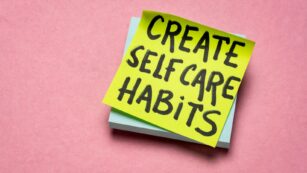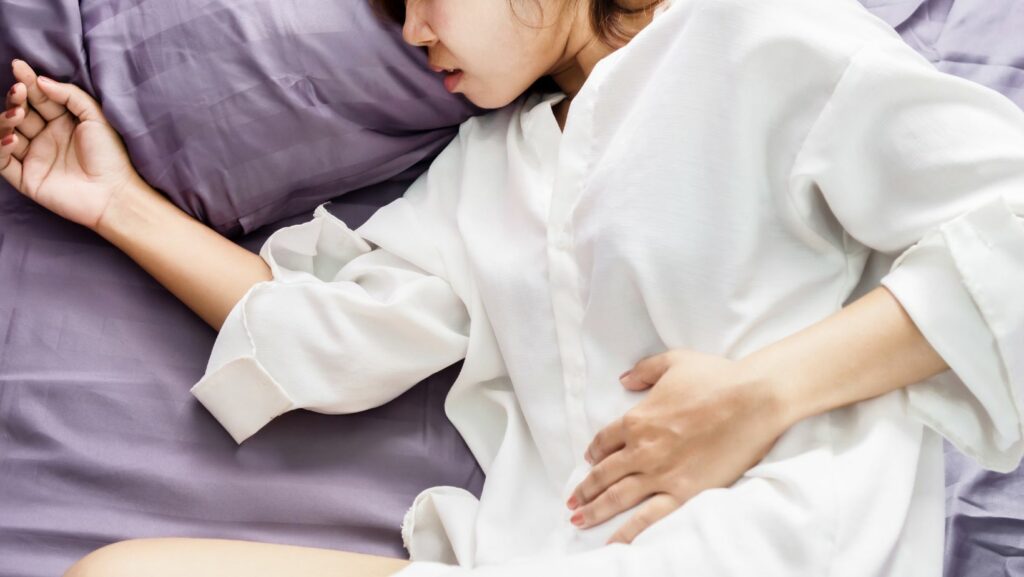Menstruation can be a challenging time, but with the right self-care practices, it’s possible to navigate it more comfortably. From managing cramps to maintaining emotional well-being, understanding how to care for oneself during this period can make a significant difference. Incorporating simple yet effective self-care routines can help alleviate some of the physical and emotional discomforts associated with menstruation. Activities like gentle swimming can also be effective, as water buoyancy lessens strain on muscles and joints. Whether it’s through proper nutrition, gentle exercise, or mindfulness techniques, these strategies can empower individuals to feel more in control and at ease during their menstrual cycle. Herbal teas, such as chamomile and peppermint, also offer relief by soothing abdominal discomfort and promoting relaxation. Engaging in regular physical activity has significant benefits during menstruation. Light exercises, like walking, yoga, and stretching, improve blood circulation, reduce cramps, and elevate mood by releasing endorphins.
Self Care During Menstruation
 Effective self-care during menstruation can greatly alleviate both physical discomfort and emotional stress. Understanding various aspects of menstruation can empower individuals to take control of their well-being. Menstruation is the monthly shedding of the uterine lining when pregnancy doesn’t occur. This cycle, typically lasting 21-35 days, involves hormonal changes preparing the body for potential pregnancy. Estrogen and progesterone levels fluctuate significantly. Self-care during menstruation assists in managing symptoms. Activities like gentle swimming can also be effective, as water buoyancy lessens strain on muscles and joints. Adequate hydration, balanced nutrition, mild exercise, and resting when necessary can significantly improve comfort. Practicing relaxation techniques, like meditation or deep-breathing exercises, can also enhance emotional well-being. By adopting effective self-care strategies and seeking professional advice when necessary, individuals can navigate menstruation with greater ease and confidence. Prioritizing self-care during this time isn’t just beneficial—it’s essential for overall well-being. Engaging in regular physical activity has significant benefits during menstruation. Light exercises, like walking, yoga, and stretching, improve blood circulation, reduce cramps, and elevate mood by releasing endorphins.
Effective self-care during menstruation can greatly alleviate both physical discomfort and emotional stress. Understanding various aspects of menstruation can empower individuals to take control of their well-being. Menstruation is the monthly shedding of the uterine lining when pregnancy doesn’t occur. This cycle, typically lasting 21-35 days, involves hormonal changes preparing the body for potential pregnancy. Estrogen and progesterone levels fluctuate significantly. Self-care during menstruation assists in managing symptoms. Activities like gentle swimming can also be effective, as water buoyancy lessens strain on muscles and joints. Adequate hydration, balanced nutrition, mild exercise, and resting when necessary can significantly improve comfort. Practicing relaxation techniques, like meditation or deep-breathing exercises, can also enhance emotional well-being. By adopting effective self-care strategies and seeking professional advice when necessary, individuals can navigate menstruation with greater ease and confidence. Prioritizing self-care during this time isn’t just beneficial—it’s essential for overall well-being. Engaging in regular physical activity has significant benefits during menstruation. Light exercises, like walking, yoga, and stretching, improve blood circulation, reduce cramps, and elevate mood by releasing endorphins.
Physical Self-Care Tips
Practical physical self-care practices can ease discomfort during menstruation, enhancing overall well-being. Eating a balanced diet supports physical health during menstruation. Including fruits, vegetables, lean proteins, and whole grains can alleviate symptoms like bloating and fatigue. Foods rich in iron, like spinach, lentils, and red meat, help replenish iron lost during periods. Omega-3 fatty acids, found in fish and flaxseeds, reduce inflammation and menstrual cramps. Hydration plays a crucial role in managing menstrual symptoms. Drinking at least eight 8-ounce glasses of water daily helps reduce bloating and prevents dehydration, which can worsen fatigue and headaches. Herbal teas, such as chamomile and peppermint, also offer relief by soothing abdominal discomfort and promoting relaxation. Engaging in regular physical activity has significant benefits during menstruation. Light exercises, like walking, yoga, and stretching, improve blood circulation, reduce cramps, and elevate mood by releasing endorphins. Activities like gentle swimming can also be effective, as water buoyancy lessens strain on muscles and joints. Engaging in regular physical activity has significant benefits during menstruation.
supports physical health during menstruation. Including fruits, vegetables, lean proteins, and whole grains can alleviate symptoms like bloating and fatigue. Foods rich in iron, like spinach, lentils, and red meat, help replenish iron lost during periods. Omega-3 fatty acids, found in fish and flaxseeds, reduce inflammation and menstrual cramps. Hydration plays a crucial role in managing menstrual symptoms. Drinking at least eight 8-ounce glasses of water daily helps reduce bloating and prevents dehydration, which can worsen fatigue and headaches. Herbal teas, such as chamomile and peppermint, also offer relief by soothing abdominal discomfort and promoting relaxation. Engaging in regular physical activity has significant benefits during menstruation. Light exercises, like walking, yoga, and stretching, improve blood circulation, reduce cramps, and elevate mood by releasing endorphins. Activities like gentle swimming can also be effective, as water buoyancy lessens strain on muscles and joints. Engaging in regular physical activity has significant benefits during menstruation.
Seeking Medical Help
 While self-care practices can significantly alleviate menstrual discomfort, it’s essential to recognize when to seek medical help. If symptoms are severe, persistent, or interfere with daily life, consulting a healthcare professional is crucial. Conditions like endometriosis or fibroids may require medical intervention and should not be ignored. Understanding one’s body and menstrual cycle is empowering. By adopting effective self-care strategies and seeking professional advice when necessary, individuals can navigate menstruation with greater ease and confidence. Prioritizing self-care during this time isn’t just beneficial—it’s essential for overall well-being. Engaging in regular physical activity has significant benefits during menstruation. Light exercises, like walking, yoga, and stretching, improve blood circulation, reduce cramps, and elevate mood by releasing endorphins. Activities like gentle swimming can also be effective, as water buoyancy lessens strain on muscles and joints. This cycle, typically lasting 21-35 days, involves hormonal changes preparing the body for potential pregnancy. Estrogen and progesterone levels fluctuate significantly. Self-care during menstruation assists in managing symptoms.
While self-care practices can significantly alleviate menstrual discomfort, it’s essential to recognize when to seek medical help. If symptoms are severe, persistent, or interfere with daily life, consulting a healthcare professional is crucial. Conditions like endometriosis or fibroids may require medical intervention and should not be ignored. Understanding one’s body and menstrual cycle is empowering. By adopting effective self-care strategies and seeking professional advice when necessary, individuals can navigate menstruation with greater ease and confidence. Prioritizing self-care during this time isn’t just beneficial—it’s essential for overall well-being. Engaging in regular physical activity has significant benefits during menstruation. Light exercises, like walking, yoga, and stretching, improve blood circulation, reduce cramps, and elevate mood by releasing endorphins. Activities like gentle swimming can also be effective, as water buoyancy lessens strain on muscles and joints. This cycle, typically lasting 21-35 days, involves hormonal changes preparing the body for potential pregnancy. Estrogen and progesterone levels fluctuate significantly. Self-care during menstruation assists in managing symptoms.

